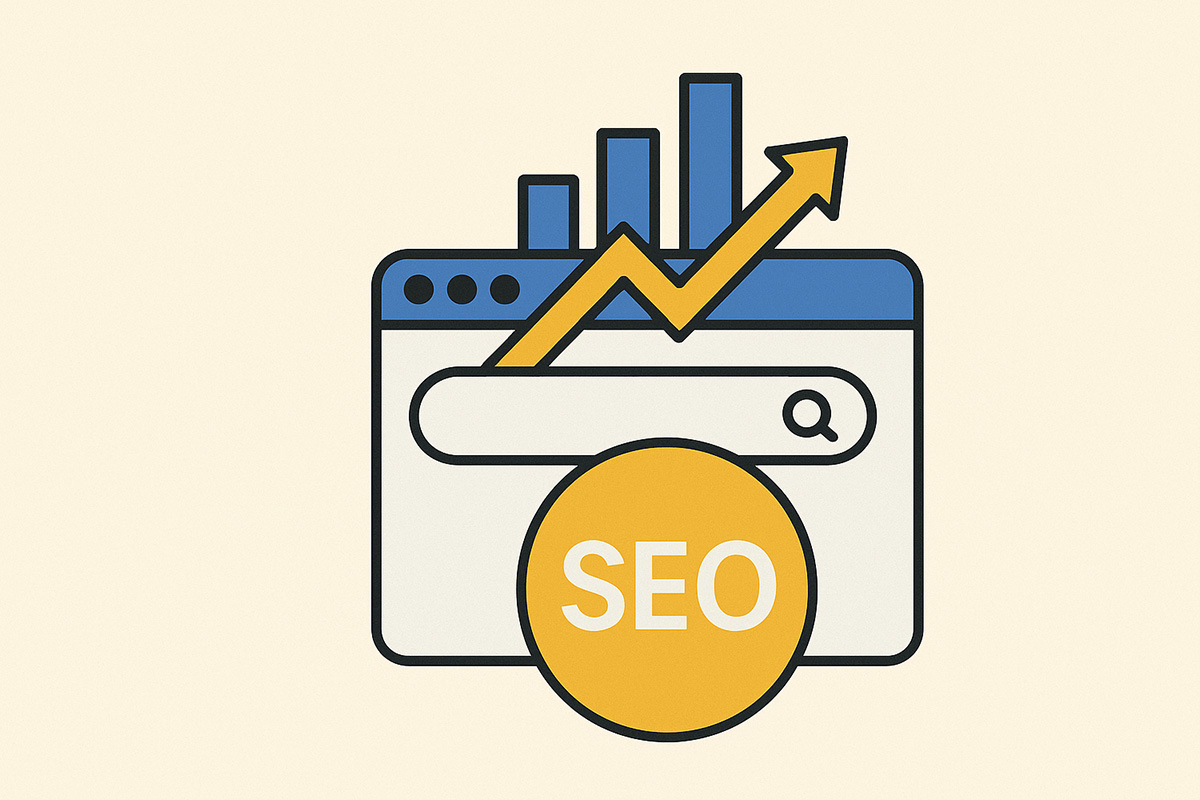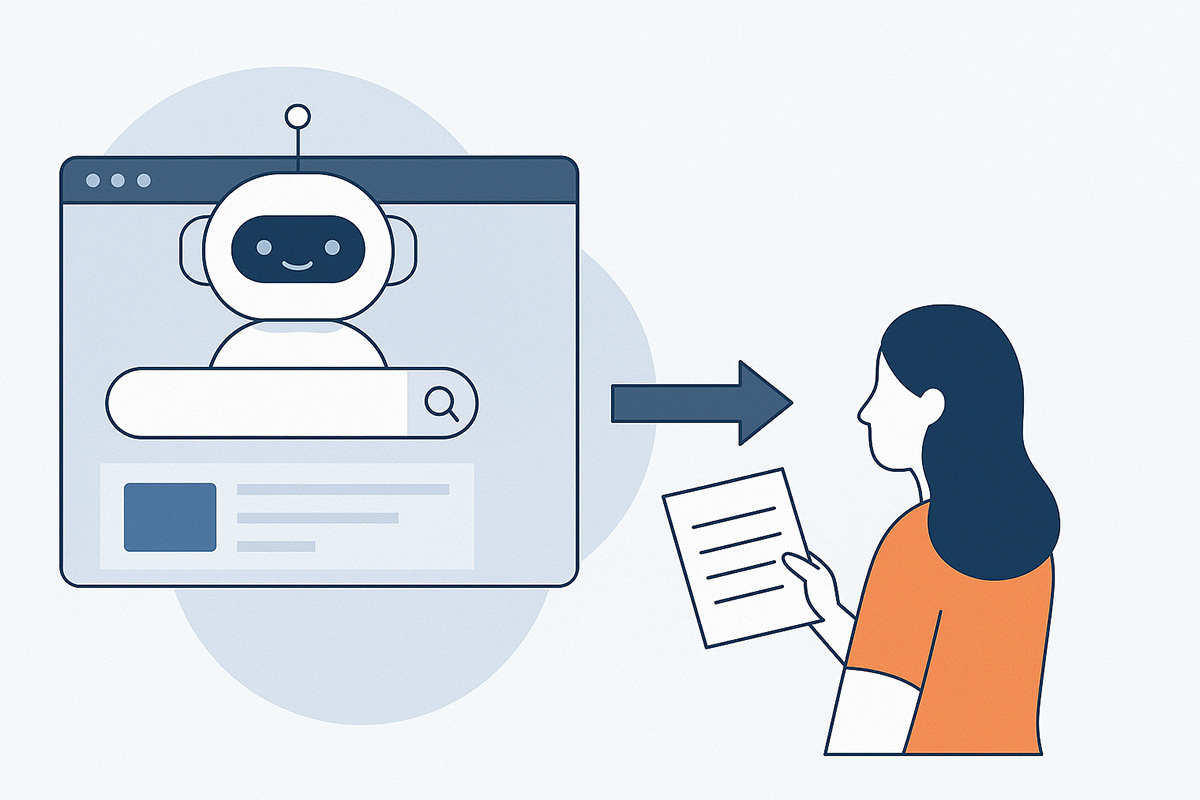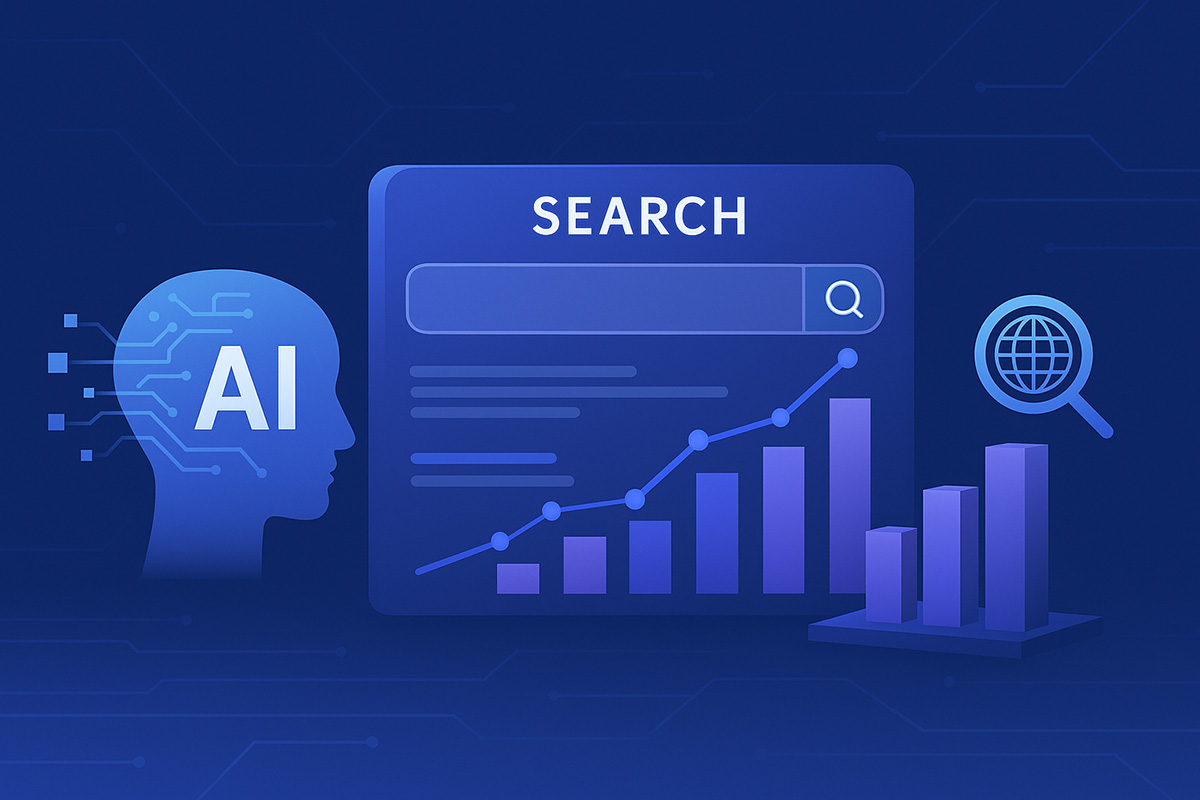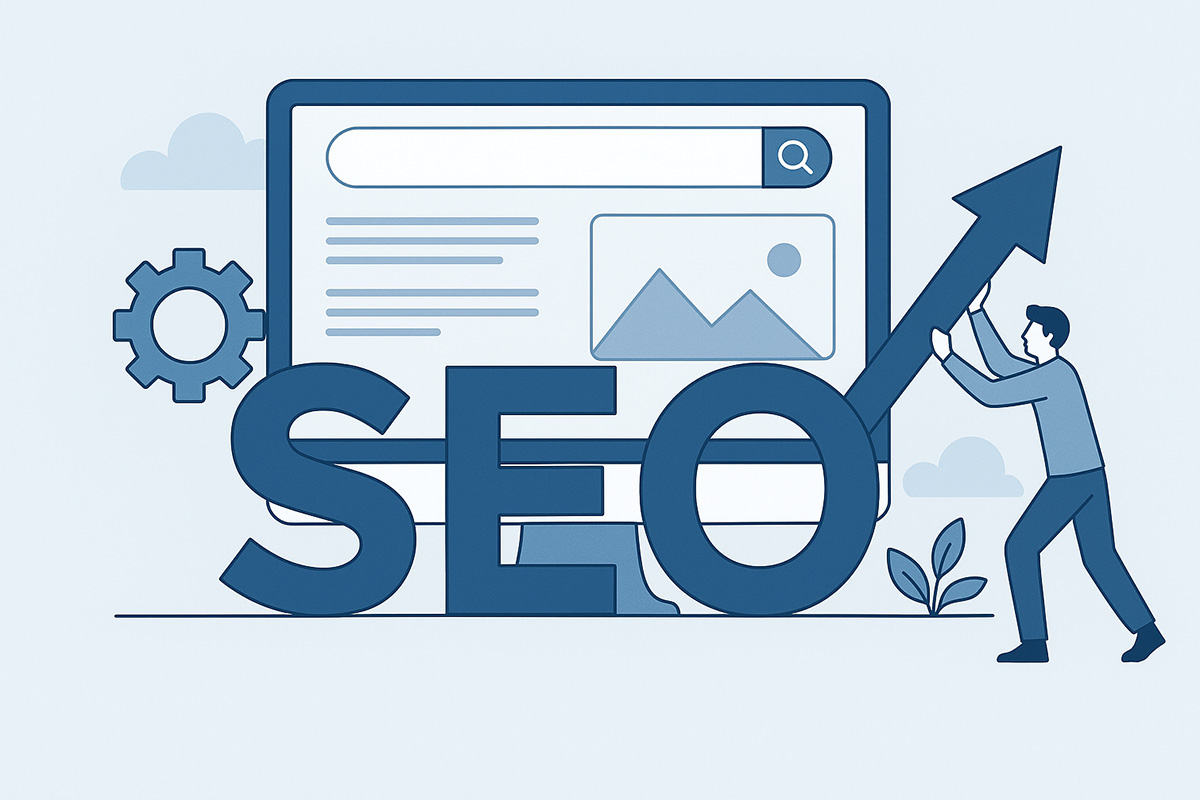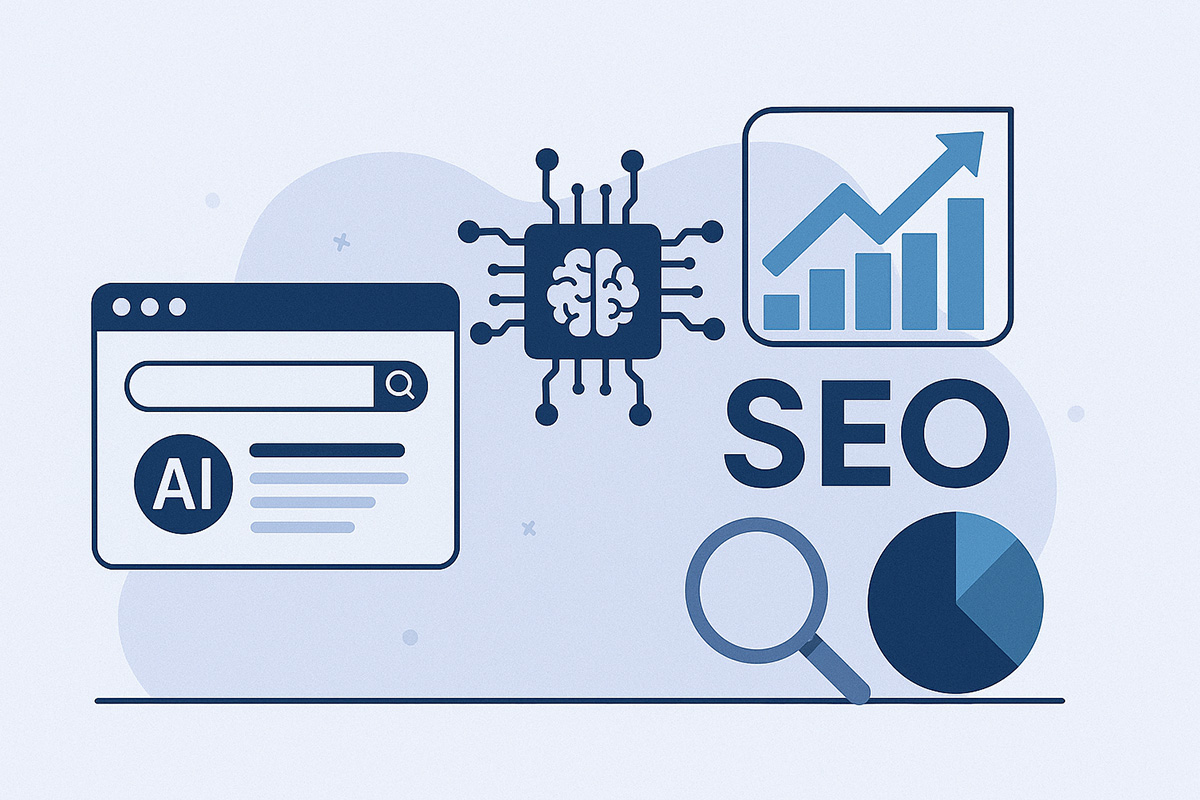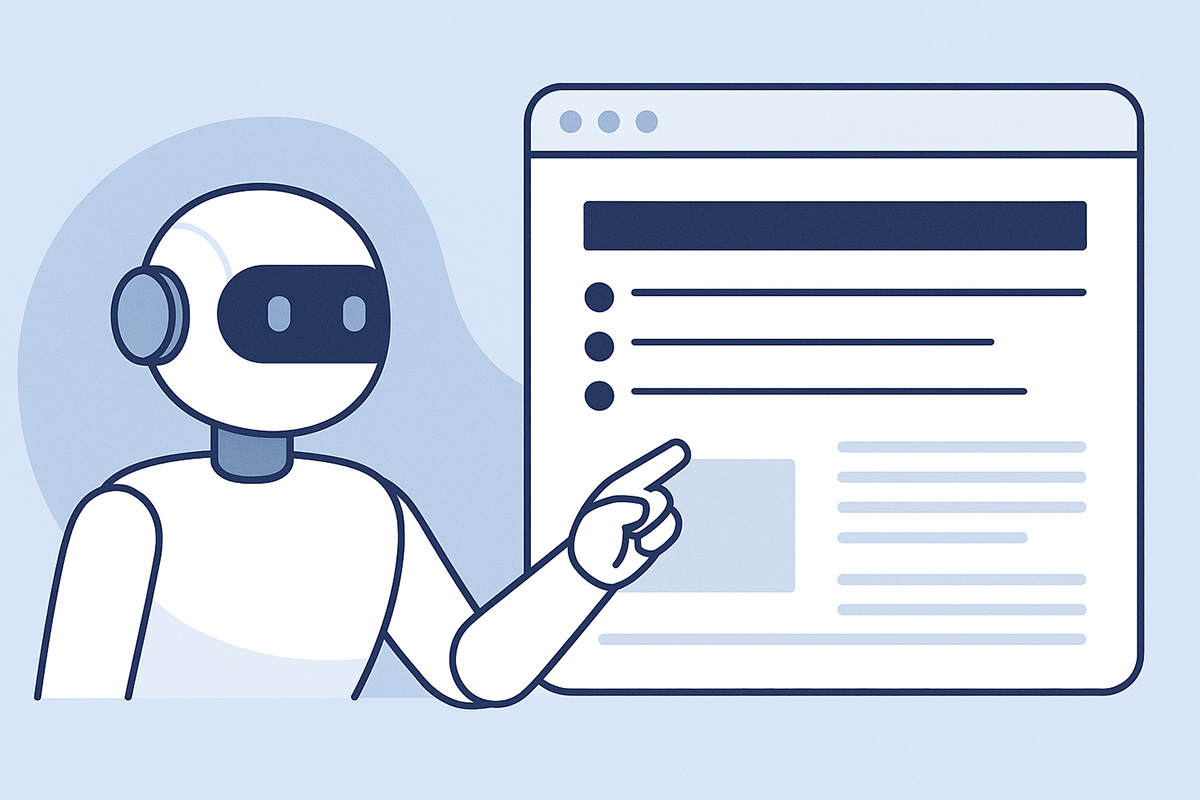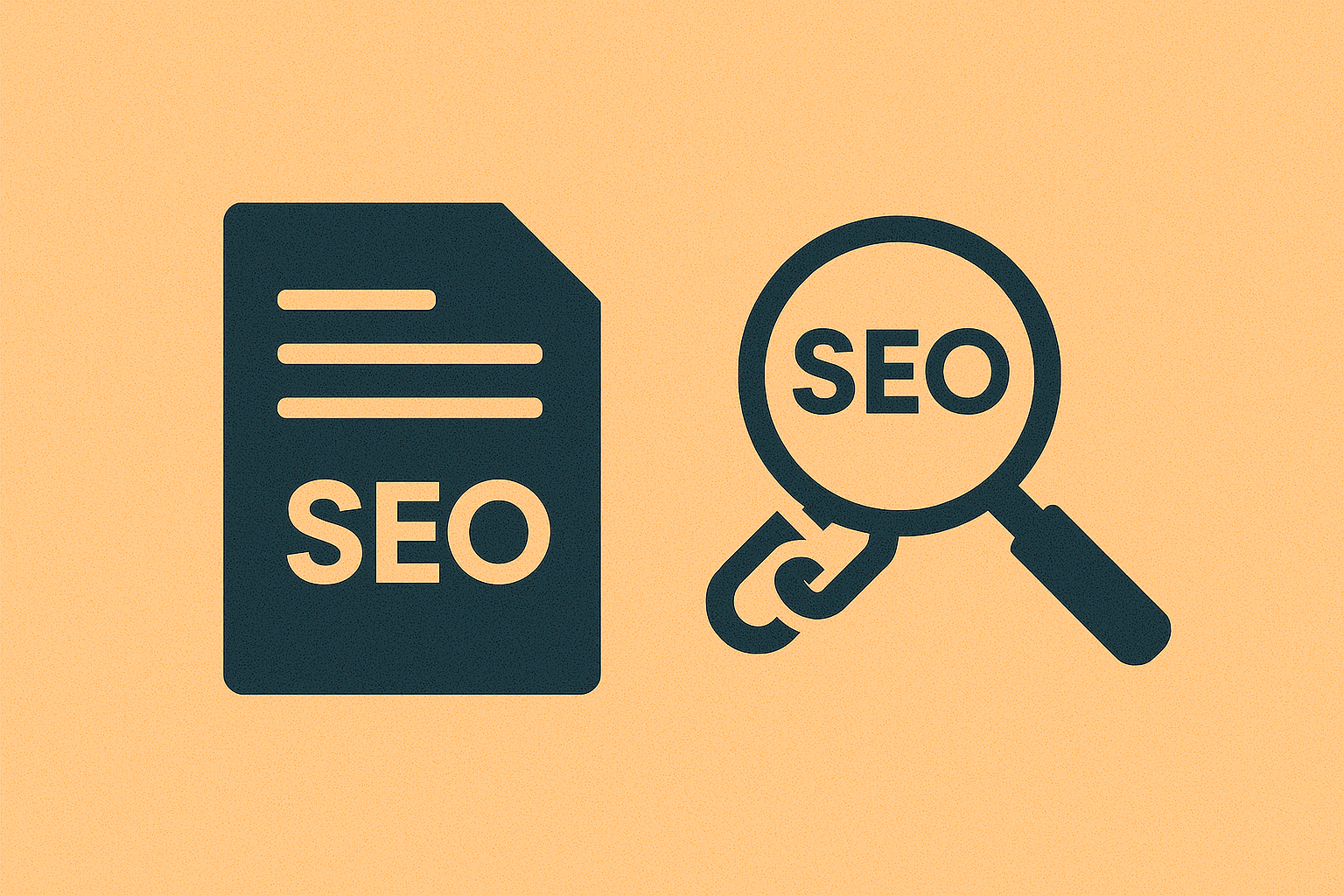Home / Blogs / How to Optimise Your Website for AI-Driven Search Engines
How to Optimise Your Website for AI-Driven Search Engines
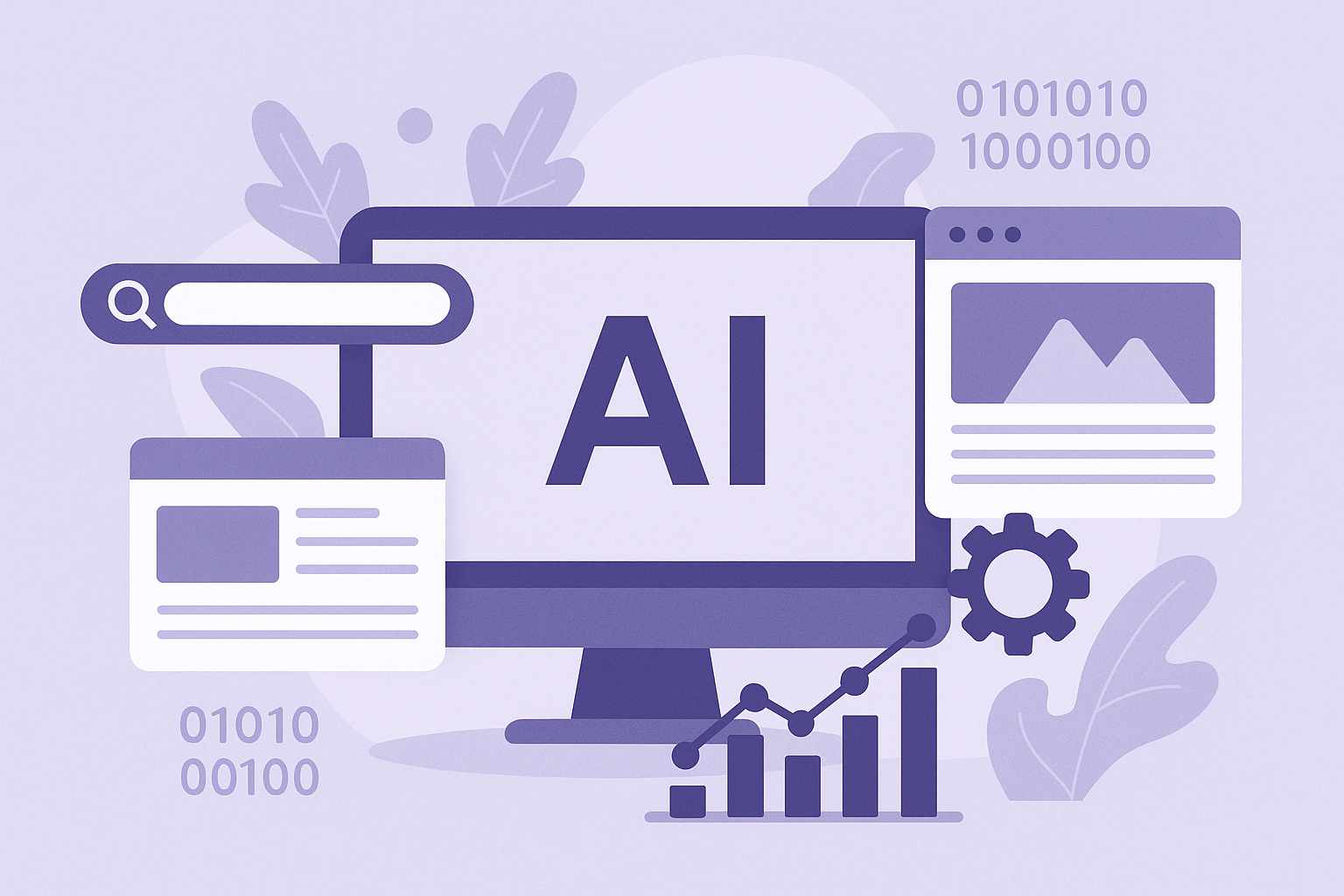 SEO
SEO
Search. It’s no longer just about showing up first on Google it’s about being seen in AI summaries, answer boxes, and voice responses. The old rules of SEO aren’t gone, but they’re no longer enough.
Today’s users don’t always click. In fact, recent numbers show that nearly six in ten U.S. searches end without a single click. That means more people are finding what they need from AI-generated overviews before they even reach your site.
If your business isn’t being cited by these systems, or worse, isn’t visible to them at all, it’s time to rethink how your website is built. At Verve Media, we help brands shift from traditional optimisation to something sharper: preparing their sites for AI-driven search engines.
What Are AI-Driven Search Engines?
AI search isn’t a layer on top of Google. It’s a new kind of interface. Tools like ChatGPT, Gemini, Bing Copilot, and Perplexity are changing how information is gathered and delivered.
Instead of returning a list of links, these platforms build full answers. They scan trusted sources, pick up structured data, and stitch together responses that feel more human and more immediate than a search result page.
While Google remains the biggest player by volume, usage of AI search tools is climbing quickly. Some estimates suggest over a billion AI-powered search queries are made each day across platforms. These engines don’t index like Google either. They rely heavily on semantic signals, structured formatting, and verified authority.
Why AI is Changing SEO at Its Core
Search engines have always evolved, but the shift to AI-first results is more dramatic than most. Google’s AI Overviews now appear in more than 13% of all search queries, and that number continues to grow. As AI results rise, click-through rates on traditional organic links are dropping. Some top-ranking pages are losing up to a third of their traffic when AI results are present.
This isn’t just a trend. It’s a permanent change in how content gets found.
For SEO professionals, the implication is clear: keyword rankings still matter, but they’re just one part of the visibility puzzle now. The bigger question is can AI find and understand your site well enough to include it in its answers?
To learn more, read our in-depth blog on the topic: Can AI Perform Technical SEO Analysis Effectively?
Shift Toward Semantic SEO and Search Intent
Old-school keyword matching is becoming less reliable. Search engines now look for meaning, not just phrases.
This is where semantic SEO comes into play. It focuses on understanding searcher intent and building topic clusters that show depth and relevance. A page optimised semantically might not repeat the keyword “marketing software” five times, but it will include related ideas like tools for startups, pricing comparisons, and onboarding processes.
At Verve, our approach pairs topic authority with internal structure. This helps search engines connect your pages and understand your expertise across themes—not just terms.
Get Serious About Your Websites Structured Data
AI search engines rely on structure. Schema markup tells these tools what each part of your page means: a review, a product, a step-by-step guide. Without it, they may not surface your content at all.
Adding structured data is no longer optional. Use schema types like FAQPage, Article, and ProductReview to make your content machine-readable. Don’t just mark up blog posts, apply schema across your entire site, especially for pages you want AI engines to understand deeply.
Test implementation using Google’s rich results tool and update regularly. Structured data should evolve alongside your content.
Content Still Rules, But Depth and Context Matter More
Content hasn’t stopped being important. But surface-level writing doesn’t cut it anymore. AI engines evaluate how useful, reliable, and complete your content is. That includes:
- Clear answers to common questions
- Supporting stats and expert citations
- Internal consistency across pages
- Smart use of visuals, examples, and summaries
Teams at Verve often find that sites struggle not because they publish too little but because what they publish doesn’t demonstrate enough understanding. Good content today reads like it was written by someone who knows the topic, not just someone chasing rankings.
Make UX and Technical SEO AI-Friendly
AI systems notice technical quality. They look at how fast your site loads, how mobile-friendly it is, and whether your code is clean. A slow or unstable site doesn’t just lose visitors; it loses visibility.
Focus on:
- Site speed and mobile performance
- Proper heading tags and internal linking
- Clean HTML and JavaScript
- Correct use of canonical tags
- Fast server response and consistent uptime
If you’re wondering, “Can AI perform technical SEO analysis effectively?” the answer is: partly. AI can scan structure, but it won’t always catch strategic context or business-specific issues. That’s why a human-led audit remains essential.
Want to read more on the subject? Read - 7 Ways AI can Revolutionise your Digital Marketing Strategy
Signs You Need a Digital Marketing Firm ASAP
Most sites today still optimise for Google alone. If any of the following apply to you, it may be time to rethink your approach:
- Your content doesn’t appear in AI summaries
- Voice searches rarely include your brand
- You’re not using schema across your content
- Traffic is declining even though rankings haven’t dropped
- Your FAQ, About, or Service pages haven’t been updated in a year
Working with an experienced digital marketing agency like ours can help bring clarity here. Agencies with AI-focused SEO capabilities can audit your content, test your visibility in generative search, and rebuild your structure from the ground up if needed.
Use AI Tools Without Losing Human Value
AI can support content creation. It can help with outlines, ideation, and even style suggestions. But left alone, it still tends to produce generic writing that won’t satisfy users, or AI engines.
At Verve, we use AI tools to speed up planning. The writing, however, comes from strategists who understand the subject, the brand, and the people reading it.
As AI-generated summaries become the front door to your website, tone and accuracy matter more than ever. Poorly written AI content may not hurt you today—but it won’t help you show up tomorrow.
How SEO Agencies Future-Proof Websites for AI Search
A forward-looking SEO agency like ours has already adjusted its playbook. Our work now includes:
- Tracking your presence across ChatGPT, Gemini, Bing Copilot
- Structuring site content to answer common AI prompts
- Monitoring visibility in zero-click and voice-based queries
- Aligning schema with search trends and content depth
- Mapping content to entities that AI models reference
It’s not just about technical skills anymore. It’s about understanding how discovery works across engines humans don’t control, and shaping your content to meet them halfway.
Final Thoughts
The future of search is already here. AI is at the centre of it. What’s changing isn’t just how users find answers, but which answers they trust, and why they trust them. To stay visible, businesses must optimise website for AI search just as carefully as they’ve done for traditional engines.
If your site isn’t being seen by AI, it isn’t being seen by a growing share of your audience. Traditional SEO is still part of the mix, but it’s no longer the whole game.
We at Verve Media work with brands to build content, structure, and performance systems that make them visible in this new world of search. That means showing up when someone types a query, but also when they speak it aloud, or when AI answers on their behalf.
FAQ’s
- How to optimise a website for AI search?
Start by improving semantic structure, applying schema markup, and focusing on content depth. Make your site technically sound and easy for machines to parse.
- How can I use AI to improve my website?
Use AI tools to research keywords, map entities, or speed up content planning. But always pair AI outputs with human editorial judgement.
- Can AI-generated content rank in search results?
It can, but quality matters. AI content must be accurate, helpful, and properly structured to earn visibility in both traditional and AI-driven search.
- How can a digital marketing agency like ours help optimise for AI search?
Agencies bring tools, strategy, and experience together. They test visibility across AI engines, apply structured data, and ensure your content is both readable and reliable.

.jpg)
.jpg)
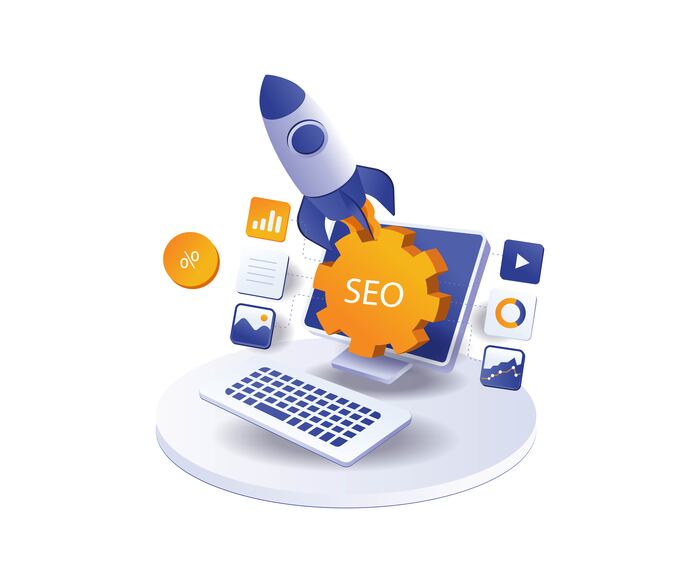



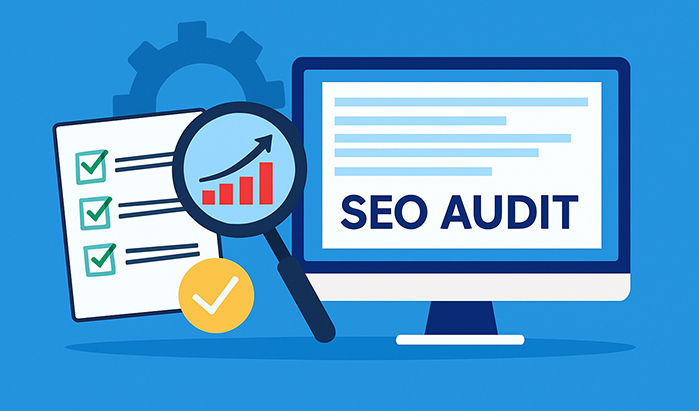

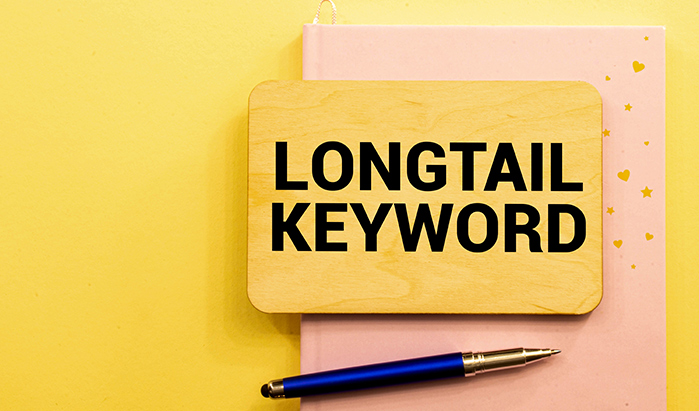


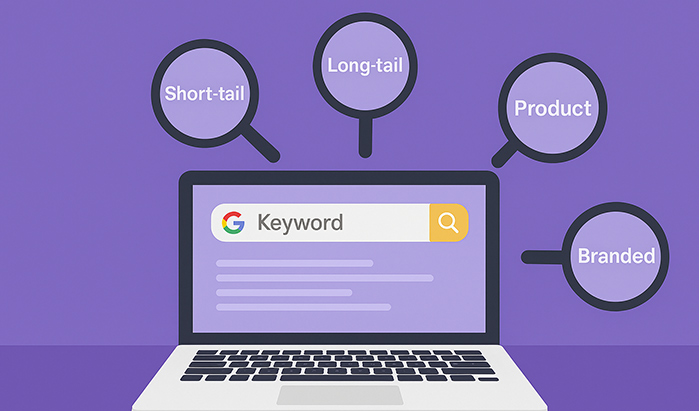
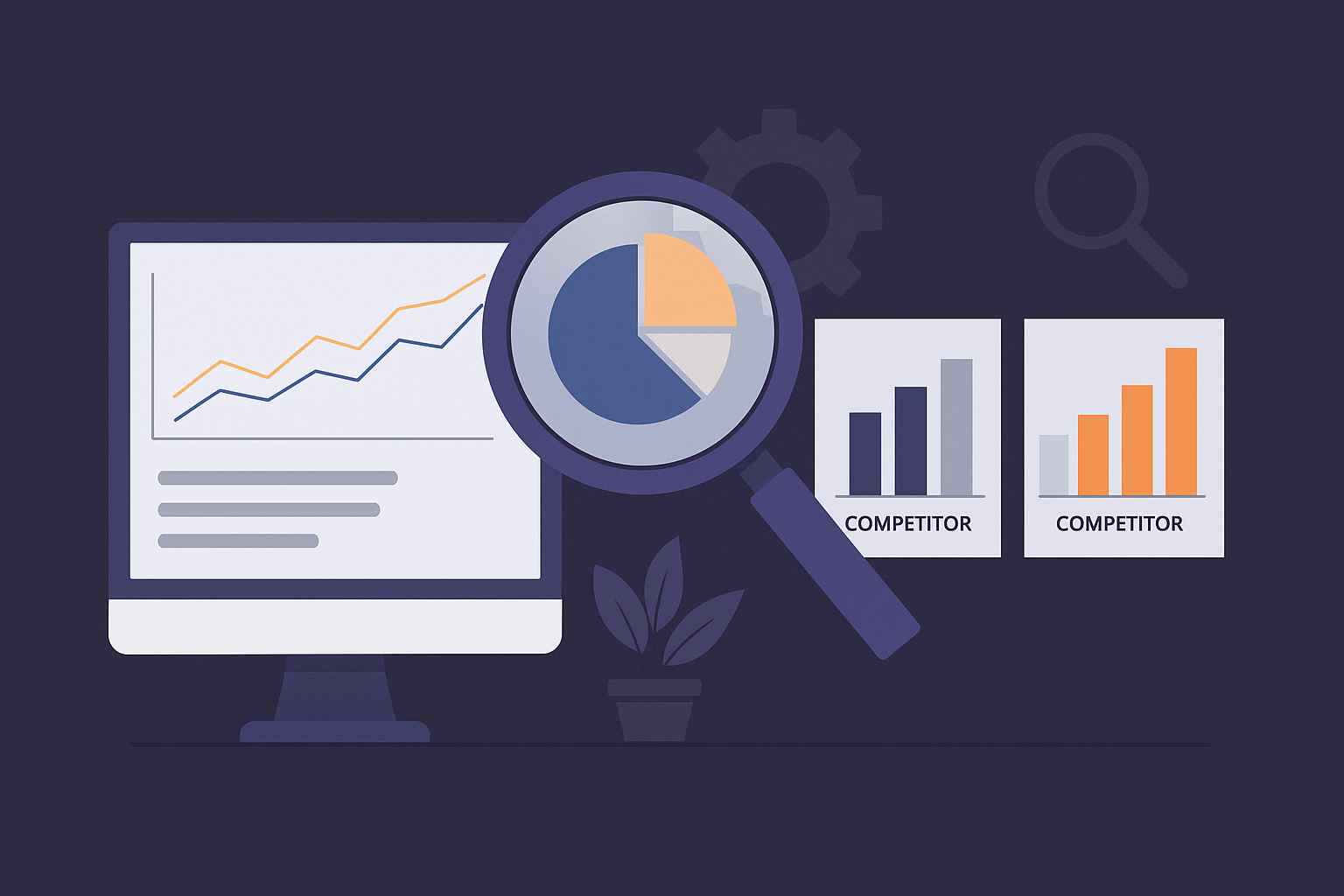

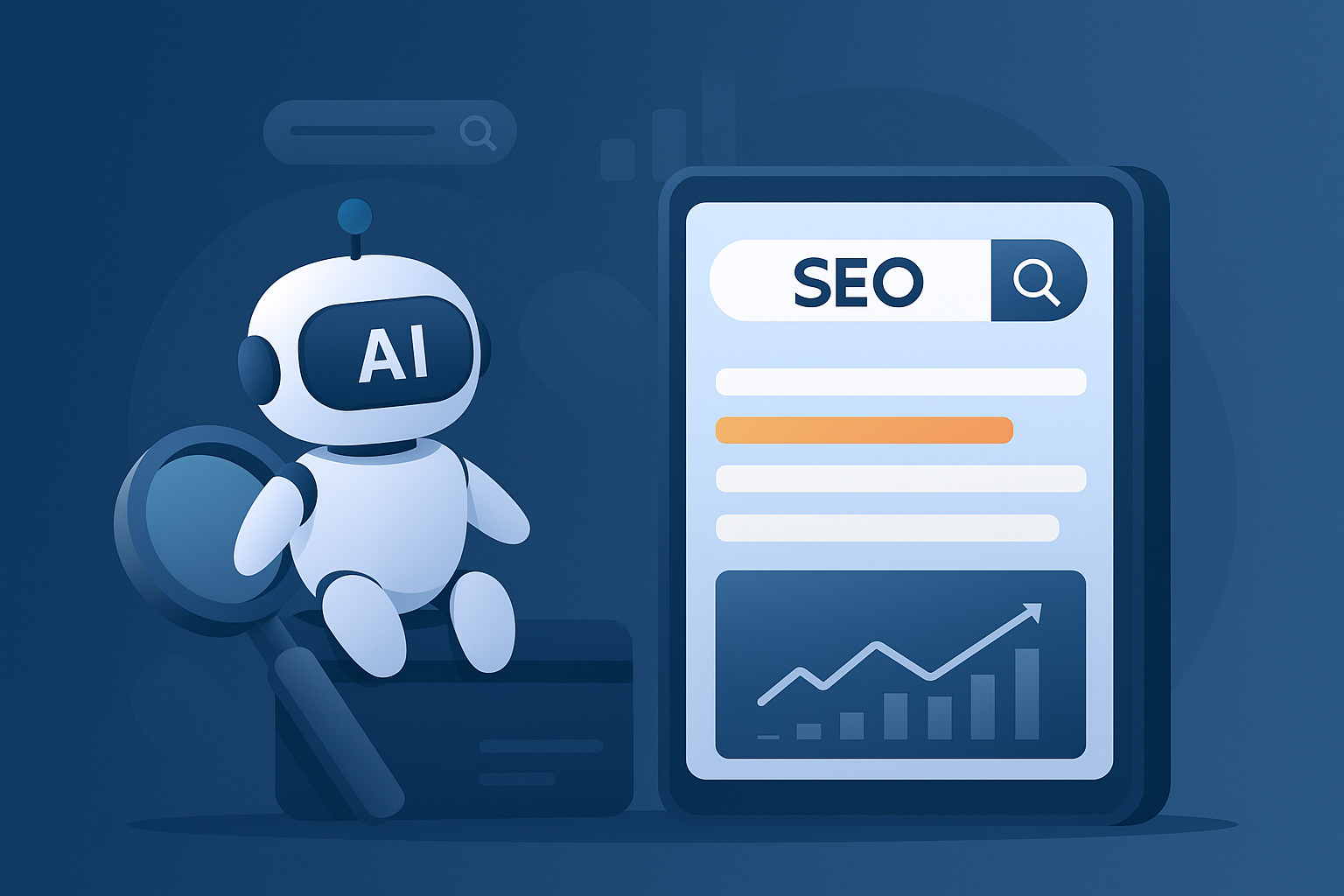
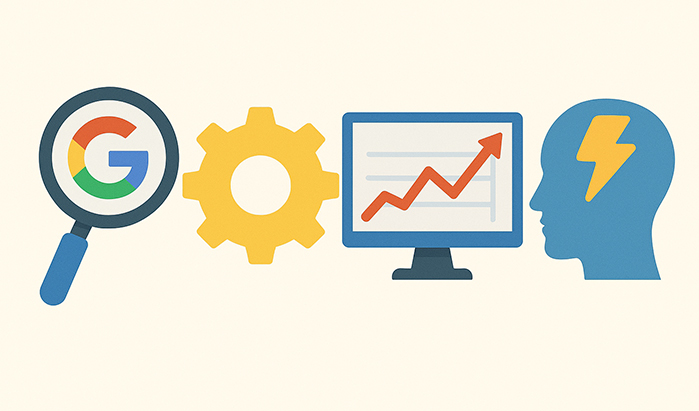

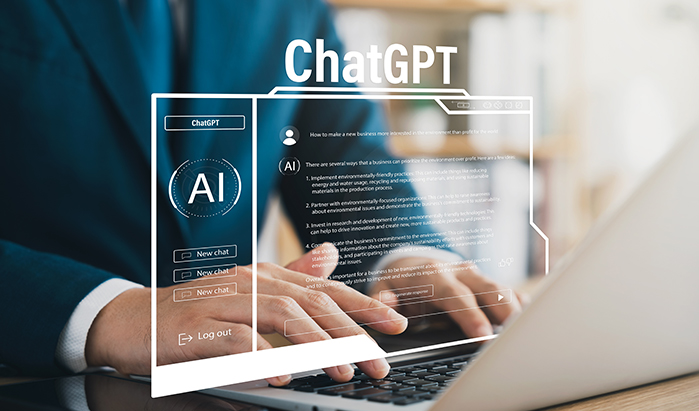


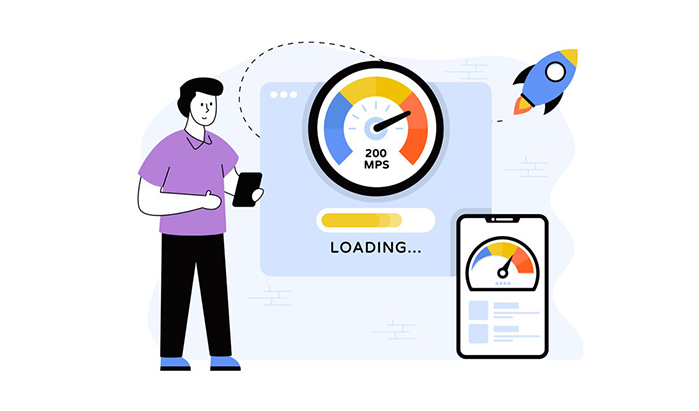


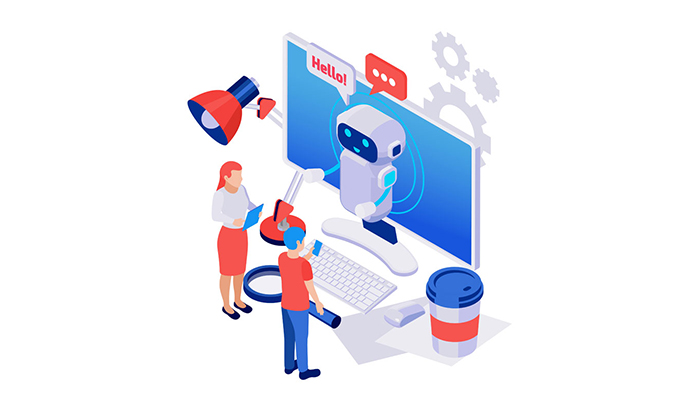
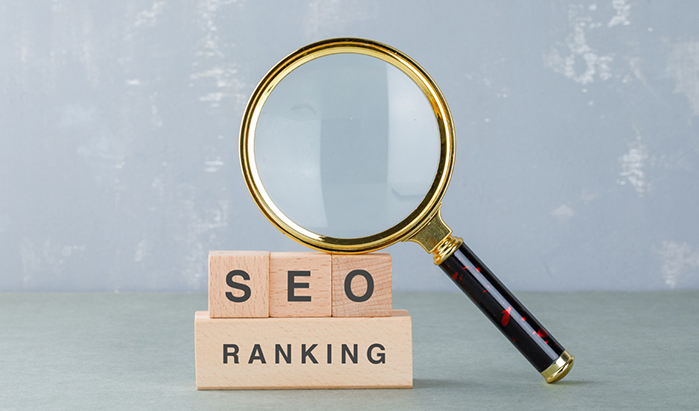
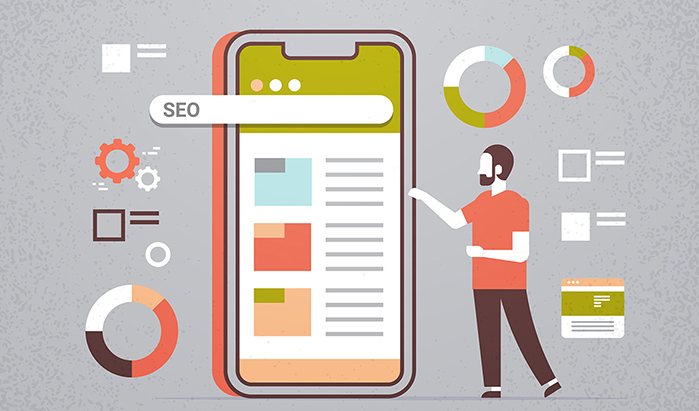
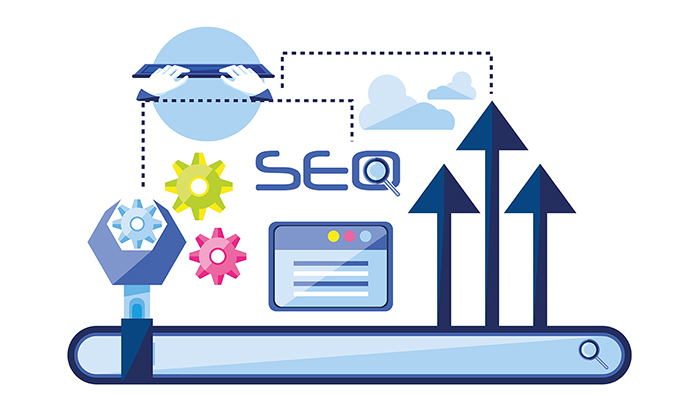

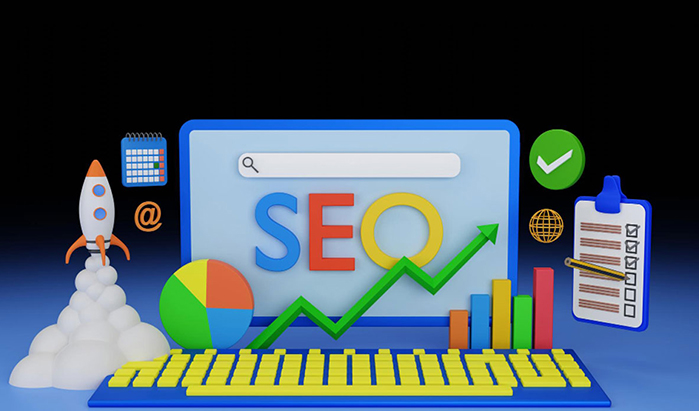
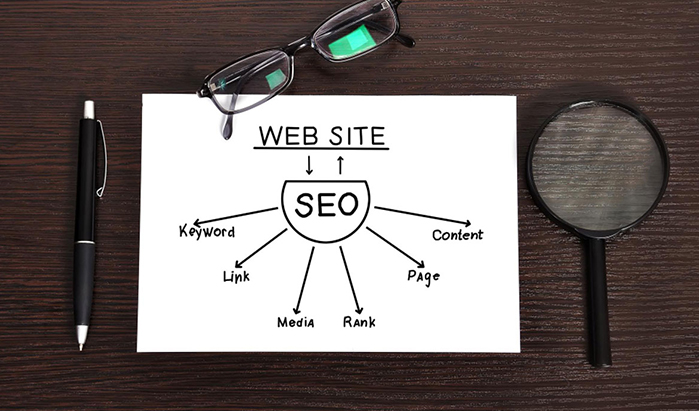






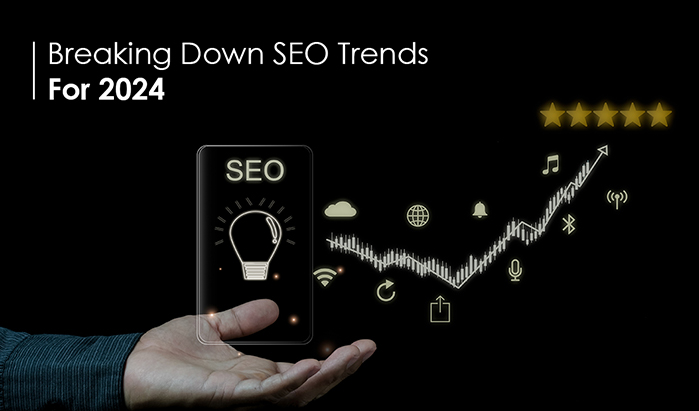




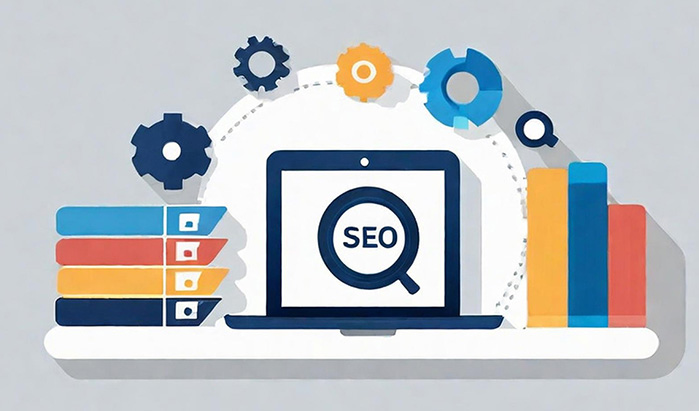

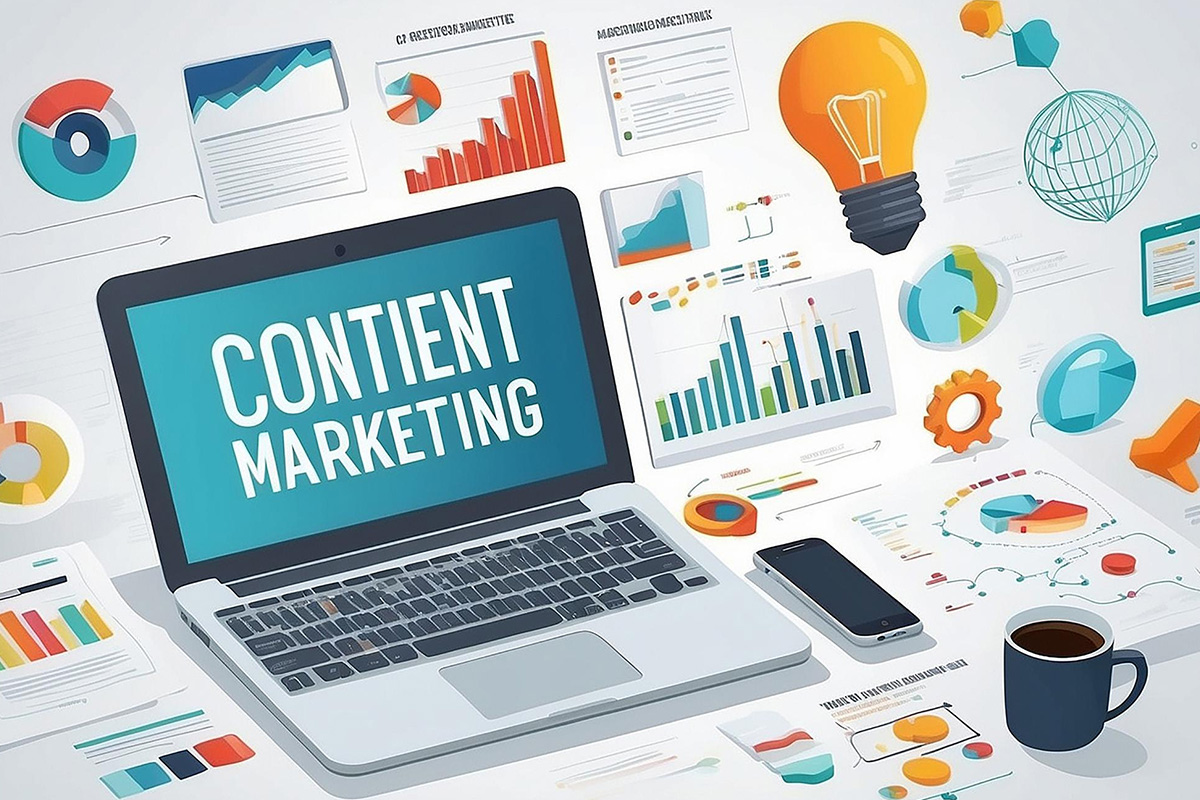
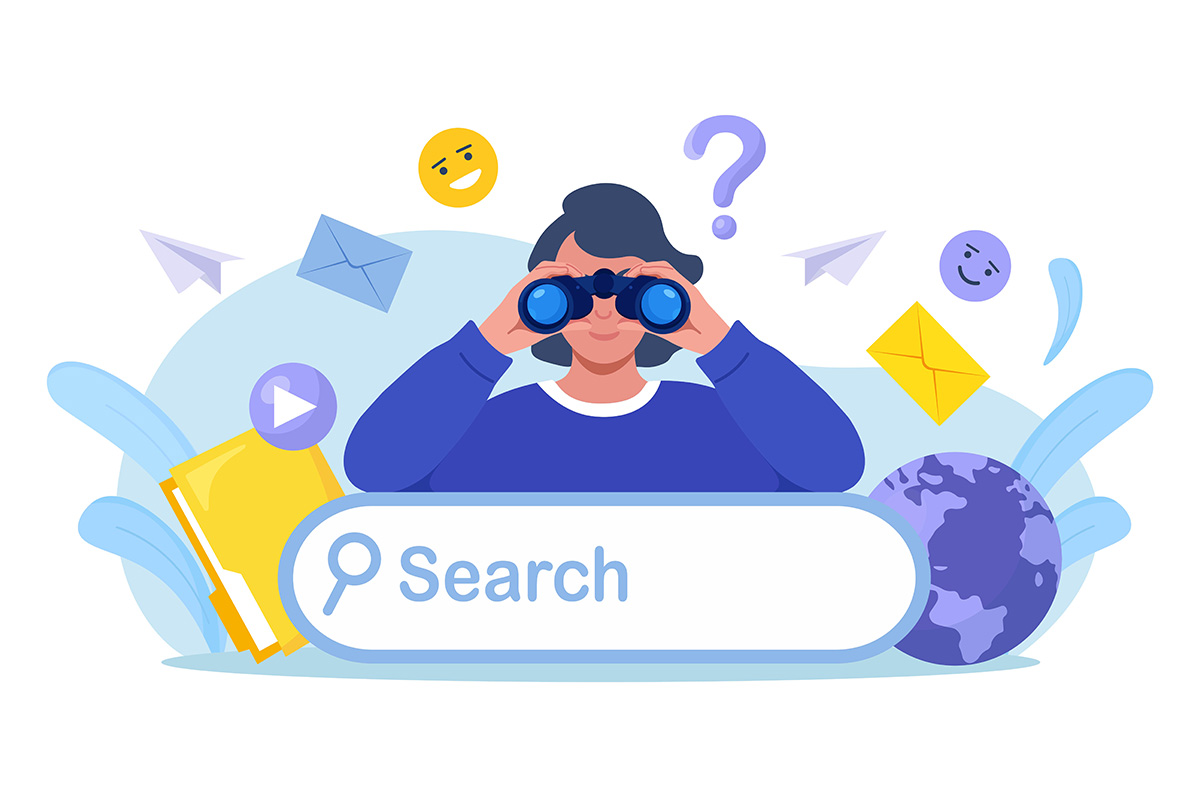

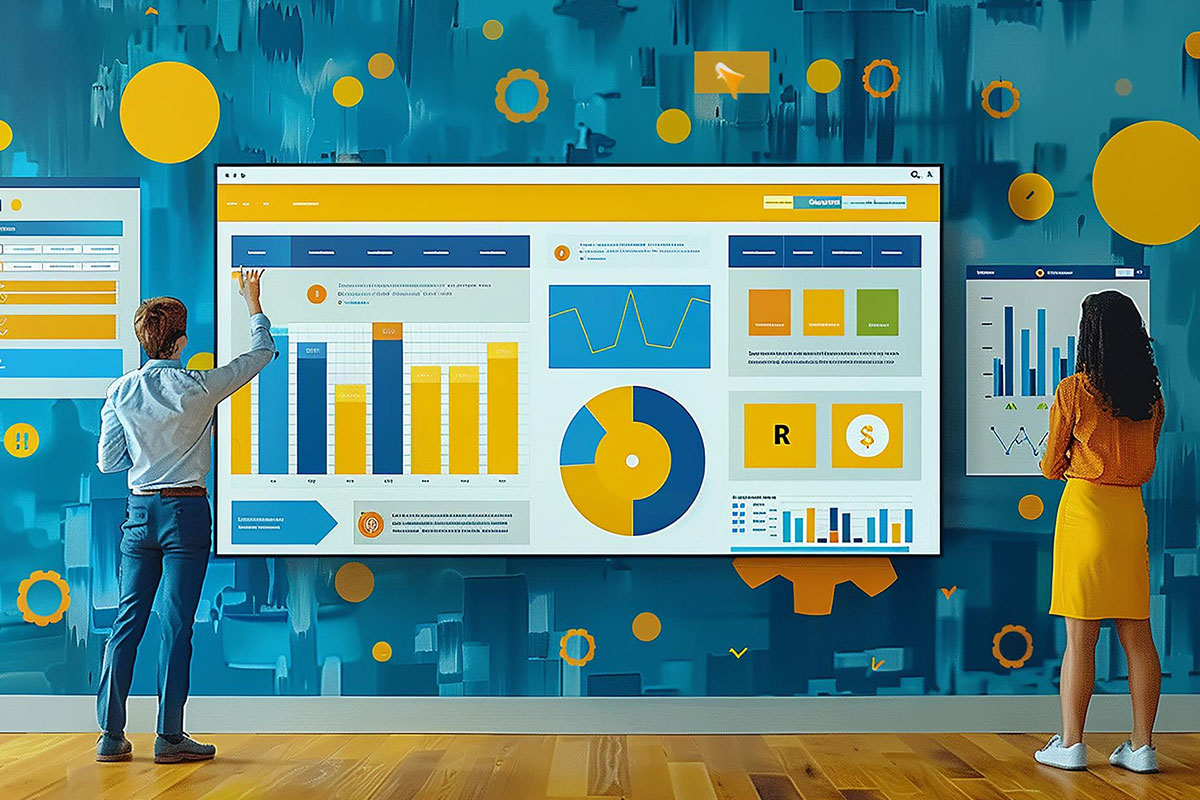








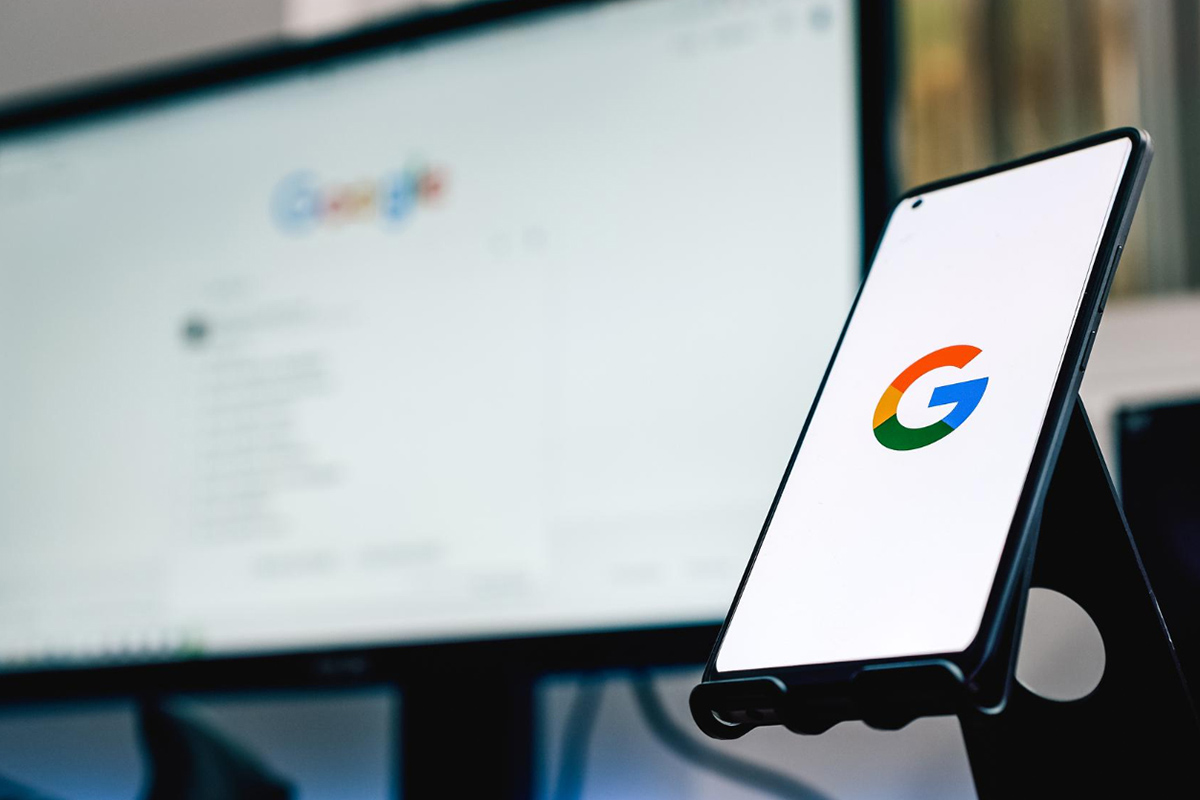









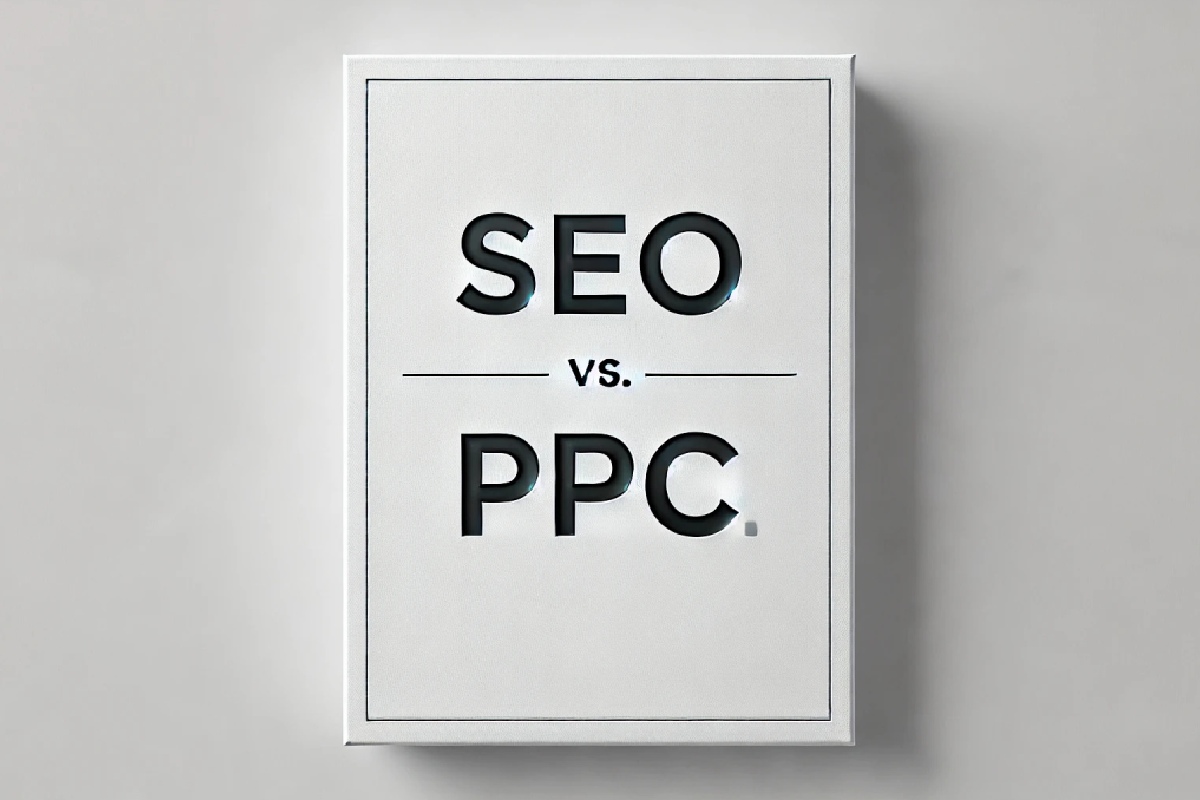






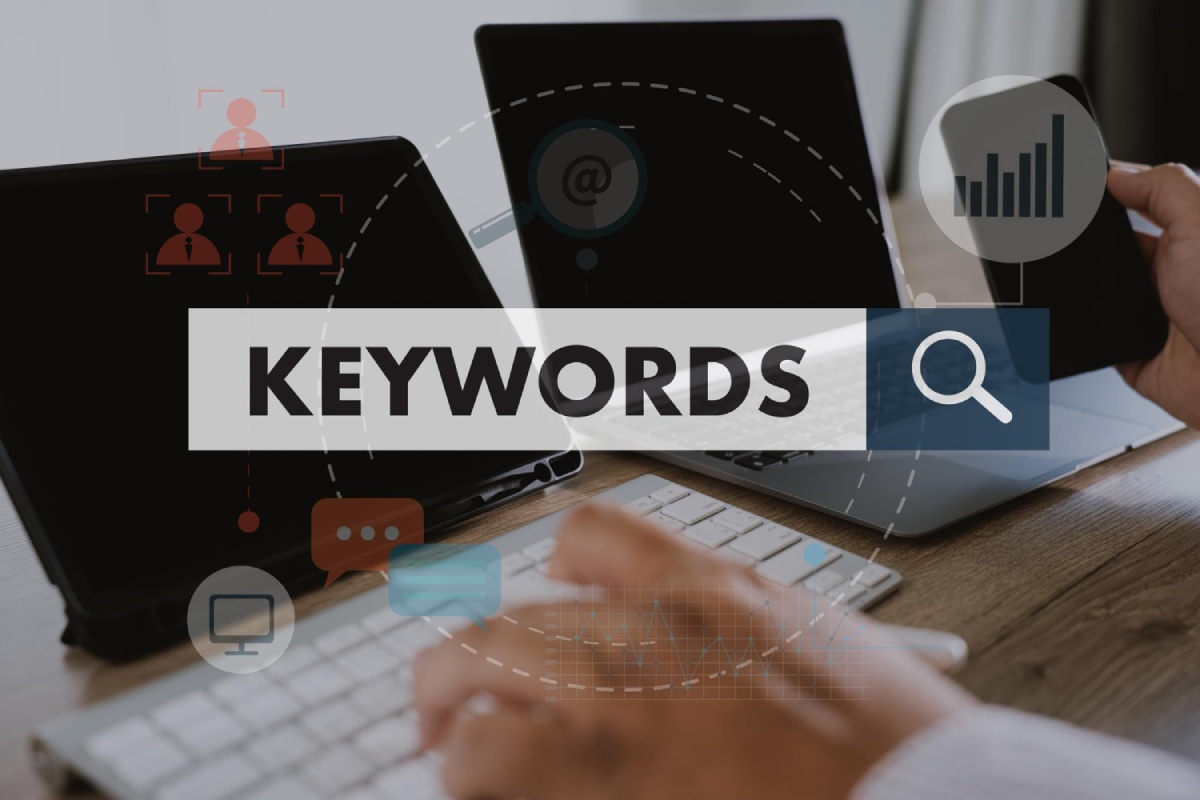
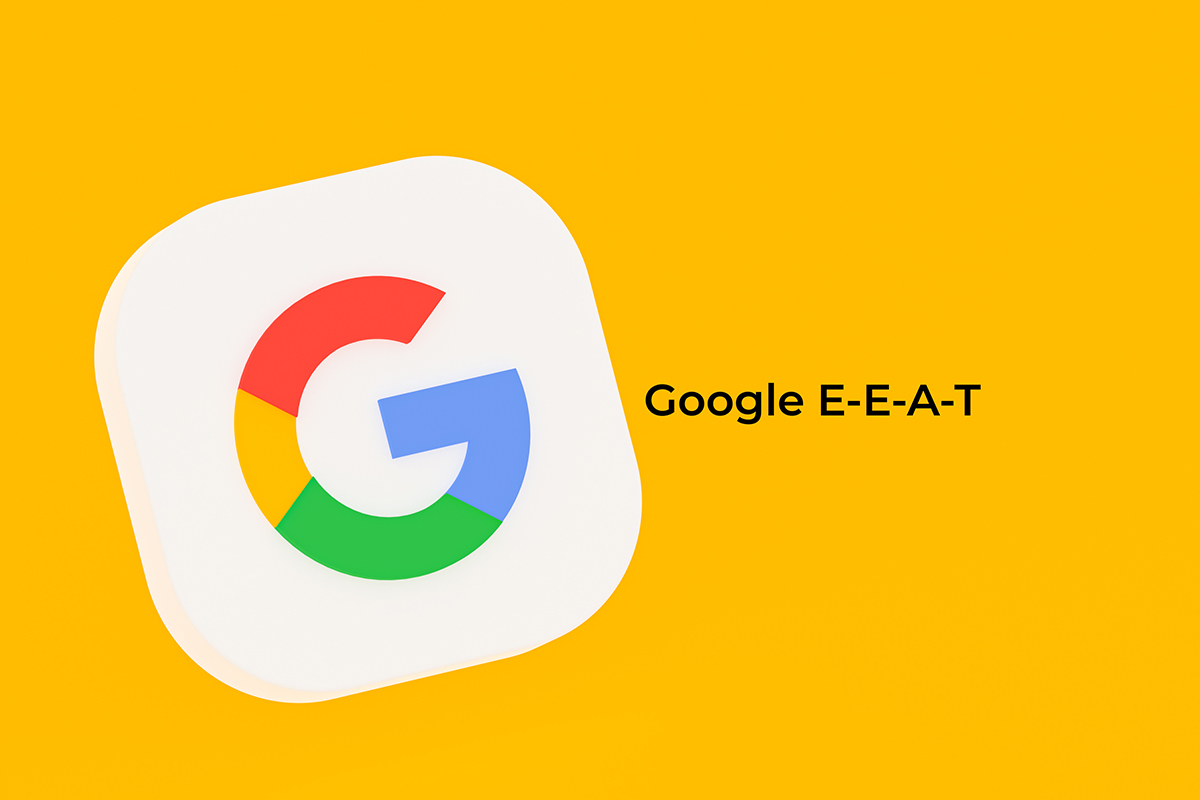

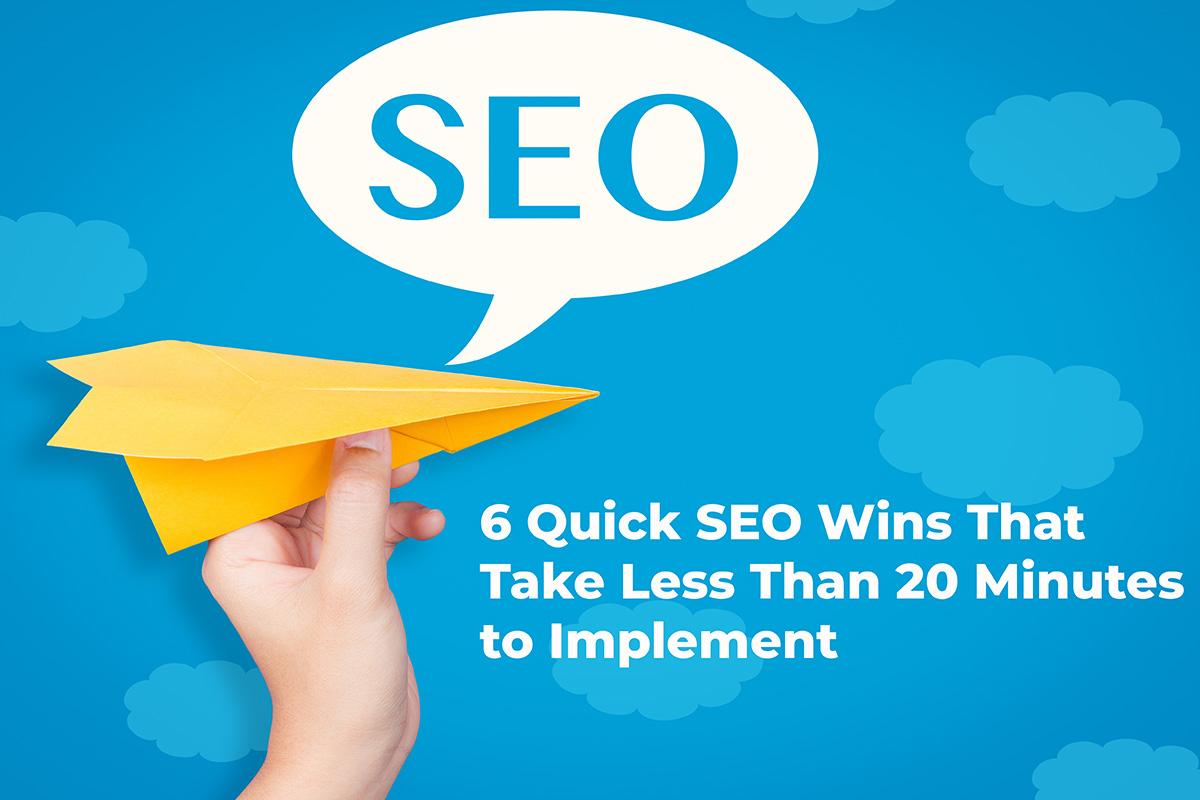












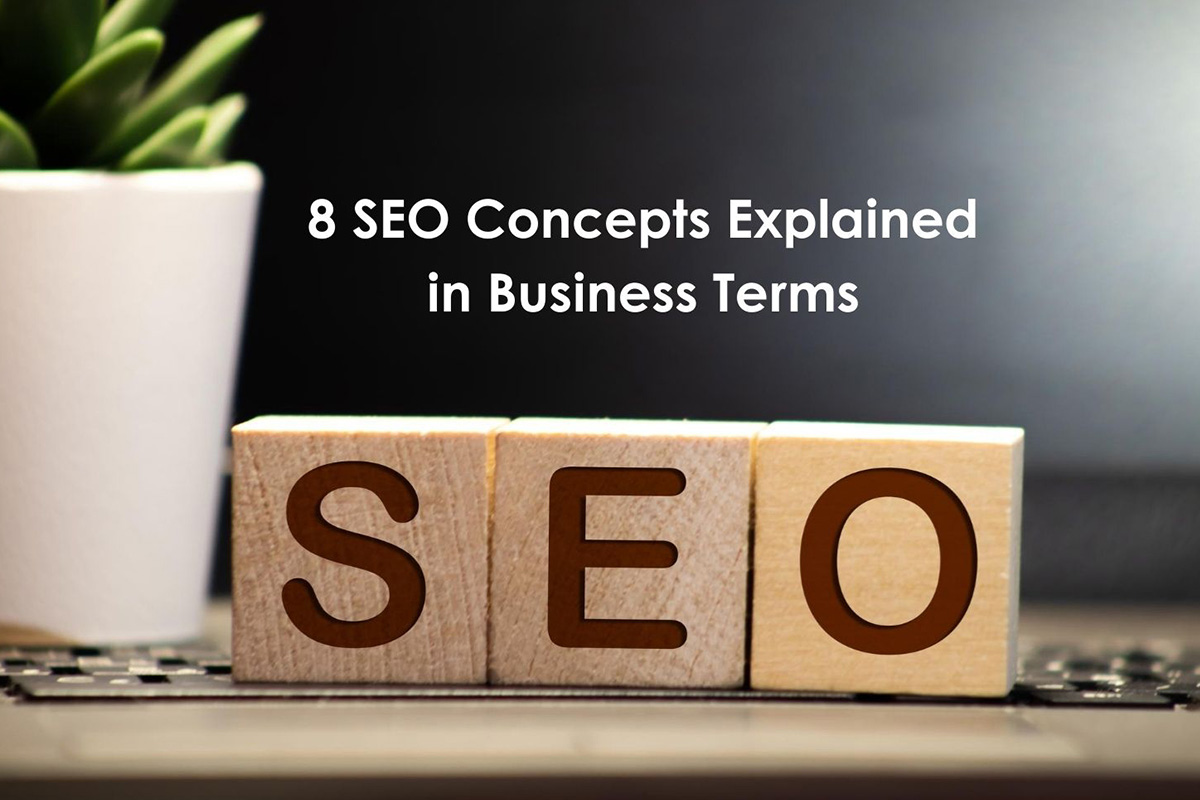



.jpg)
